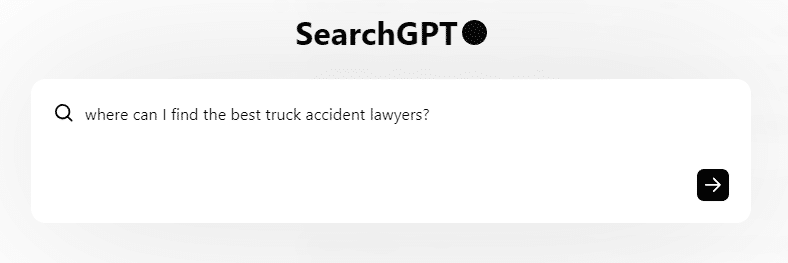
SearchGPT for Lawyers – Not Yet Ready For Primetime
Posted on August 8, 2024 by Law Leaders
By now many people have heard the news about ChatGPT rolling out their new SearchGPT search engine. The landscape of search technology, long dominated by Google, has been evolving recently, with ChatGPT emerging as a significant player in how we search for and generate new content. These new AI tools are not only transforming how people search for information but are also challenging the dominance of traditional search engines like Google. Today I will delve into the impact ChatGPT has had on the search industry, and what search currently looks like with the new SearchGPT search engine for the legal industry.
THE RISE OF AI-DRIVEN SEARCH
Artificial Intelligence (AI) has been a game-changer in many industries, and search technology is no exception. ChatGPT, using advanced language models, utilizes deep learning techniques to generate human-like responses to text inputs. Unlike traditional search engines like Google that rely largely on keyword matching and link ranking, ChatGPT focuses on understanding the context and generating relevant answers. So, when it was initially leaked months ago the ChatGPT was releasing a new search engine to compete with the likes of Google, many people took notice…including Google.
THE POTENTIAL IMPACT ON TRADITIONAL SEARCH ENGINES
The rise of ChatGPT has led to notable shifts in the search engine market. Google, the long-time leader in search technology, has felt this impact as users increasingly explore alternative ways to find information – that may be already negatively impacting Google’s results. This comes on top of recently ruling that Google is now considered a monopoly by the courts during their recent anti-trust investigations of Google. But the pain started months before this ruling came out.
A recent report from SimilarWeb indicates a slight decrease in Google’s search traffic, with a 2-3% drop in certain regions where AI-driven search tools like ChatGPT are gaining popularity. Google’s ad revenue has also been impacted as users spend more time interacting with AI tools. While the effect is still emerging, early data suggests a potential 1-2% decline in ad clicks attributable to users’ shift to AI platforms. Some experts even suggest that Google could lose 25% of their search traffic to AI tools by 2026.
It is not hard to believe these reports when I see this firsthand. Not only is the time I spend on Google declining in favor of AI tools, but so are many of the attorneys I work with and speak to when asked about their own evolving usage levels. And that is BEFORE the official release of SearchGPT. So, what happens when SearchGPT is finally released?
A LOOK UNDER THE HOOD OF THE NEW SEARCHGPT
A little over a week ago I was granted an early “beta” access to SearchGPT and being in the legal space, I naturally wanted to see what kind of results it was producing. Now, in full disclosure, SearchGPT has indicated that this is a very early version of their new search tool and by no means is what we will likely see in future versions in the months and years ahead. And although the interface is strikingly similar to ChatGPT, the initial results are surprisingly similar as well. Let me show you a few examples of what I mean…
In the first example, I asked SearchGPT “I was recently got into a car accident involving injuries. What should I do next? Do I need a lawyer?” Here is what I received…
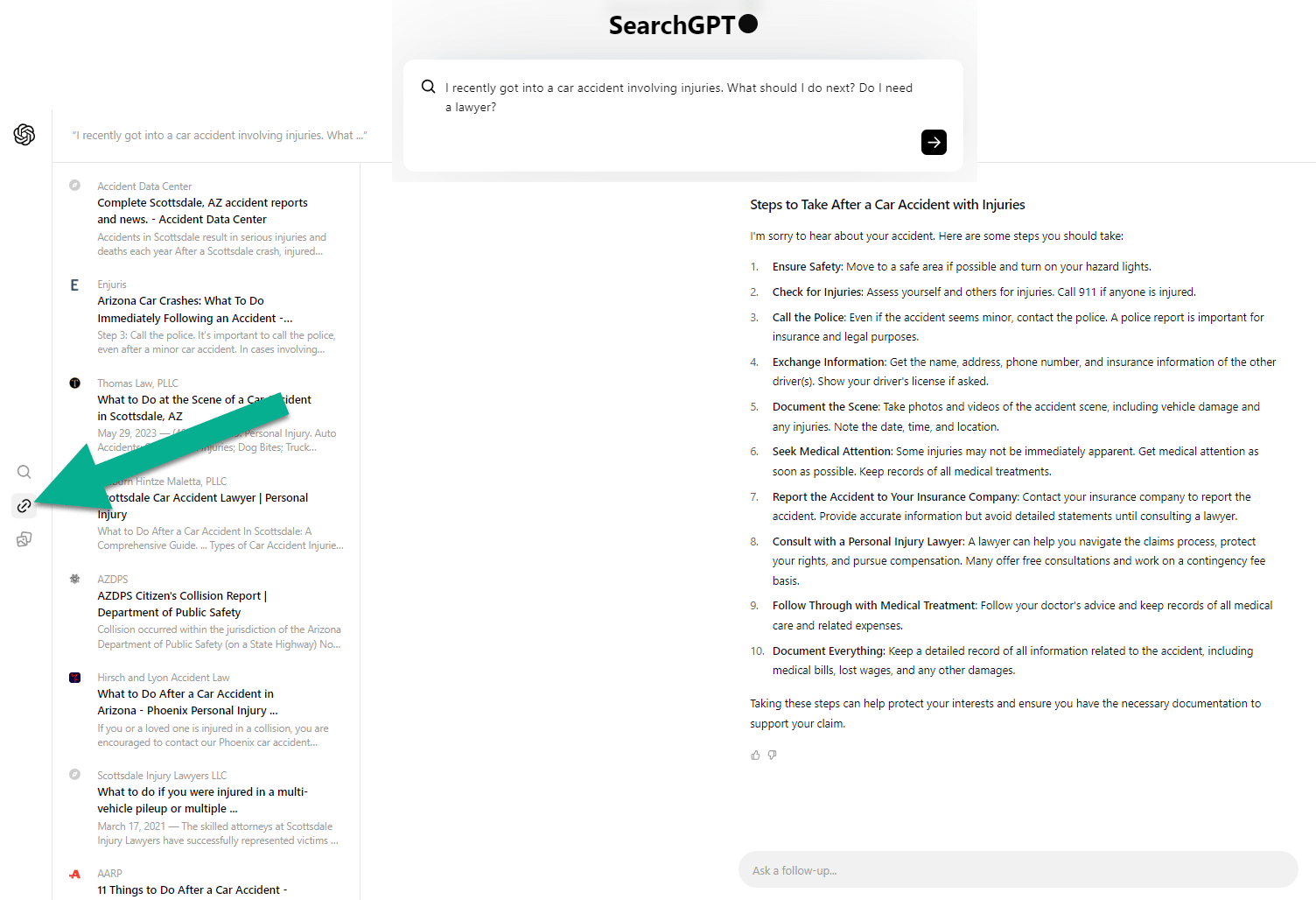
In typical AI fashion, you will notice that the resulting list displayed are a culmination of data from multiple sources instead of a single citation (page) source. On the left side of the results screen the user is presented with three options: Start A Search, See Sources (displaying detailed source data), or See Media (which displays images instead of source details as shown below)
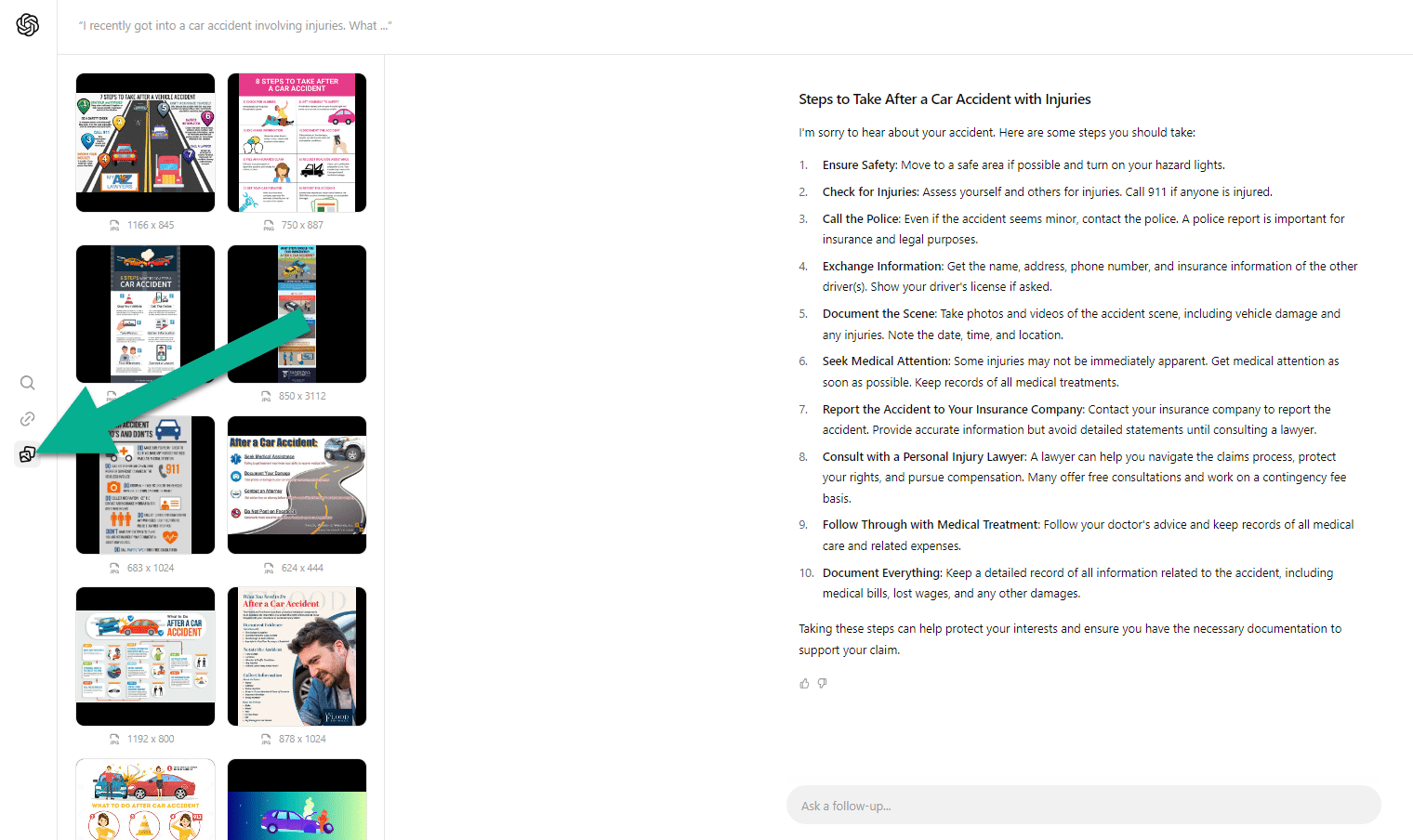
In my second example, I asked SearchGPT “who can help me update my mother’s estate plan?” and received the following results…
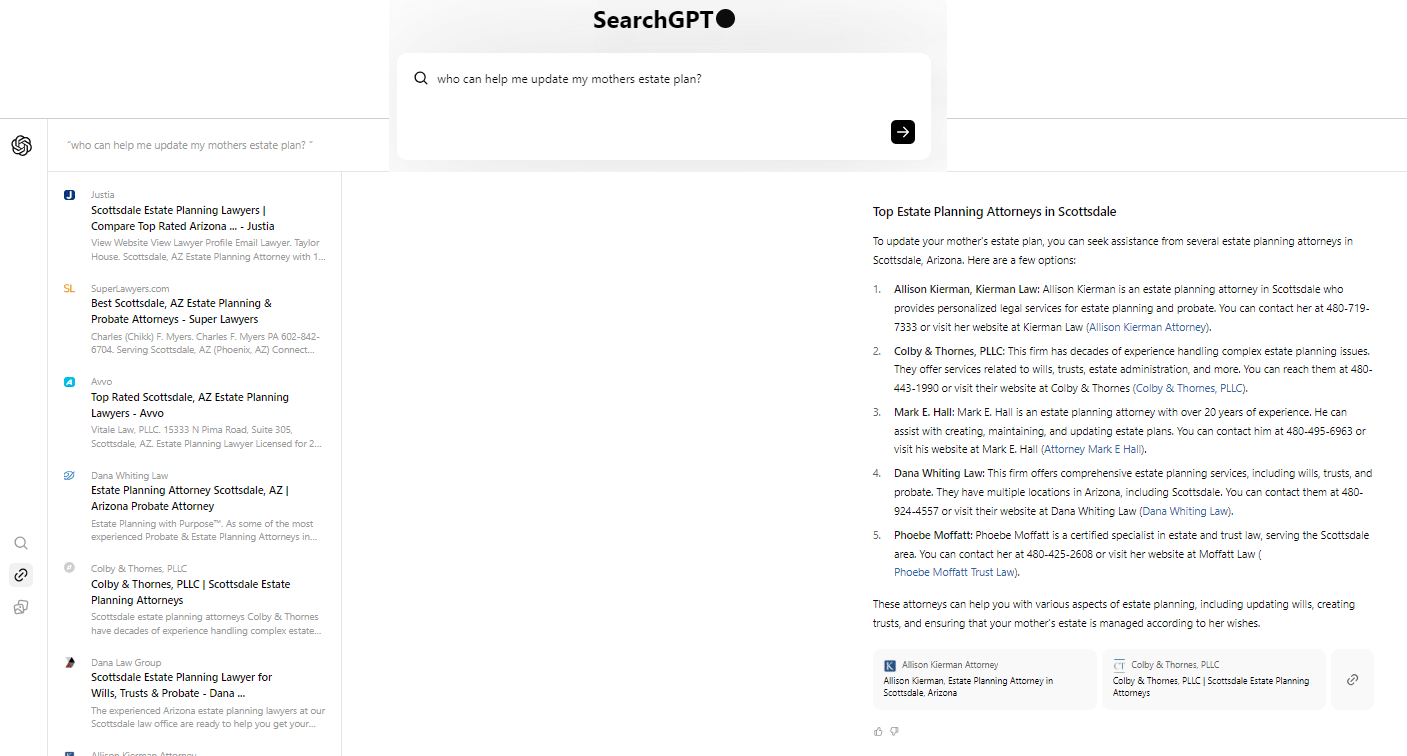
Now, you will notice from these results that SearchGPT was aware of my location without including it in my search sentence and provides many results that were local in nature. Citations are also displayed next to each result with a truncated description pulled from the source. Absent from the results are any social proofs and a clear understanding of how these sources were selected and presented.
In my third example, I asked SearchGPT “where can I find the best truck accident lawyers?” and received the following results…
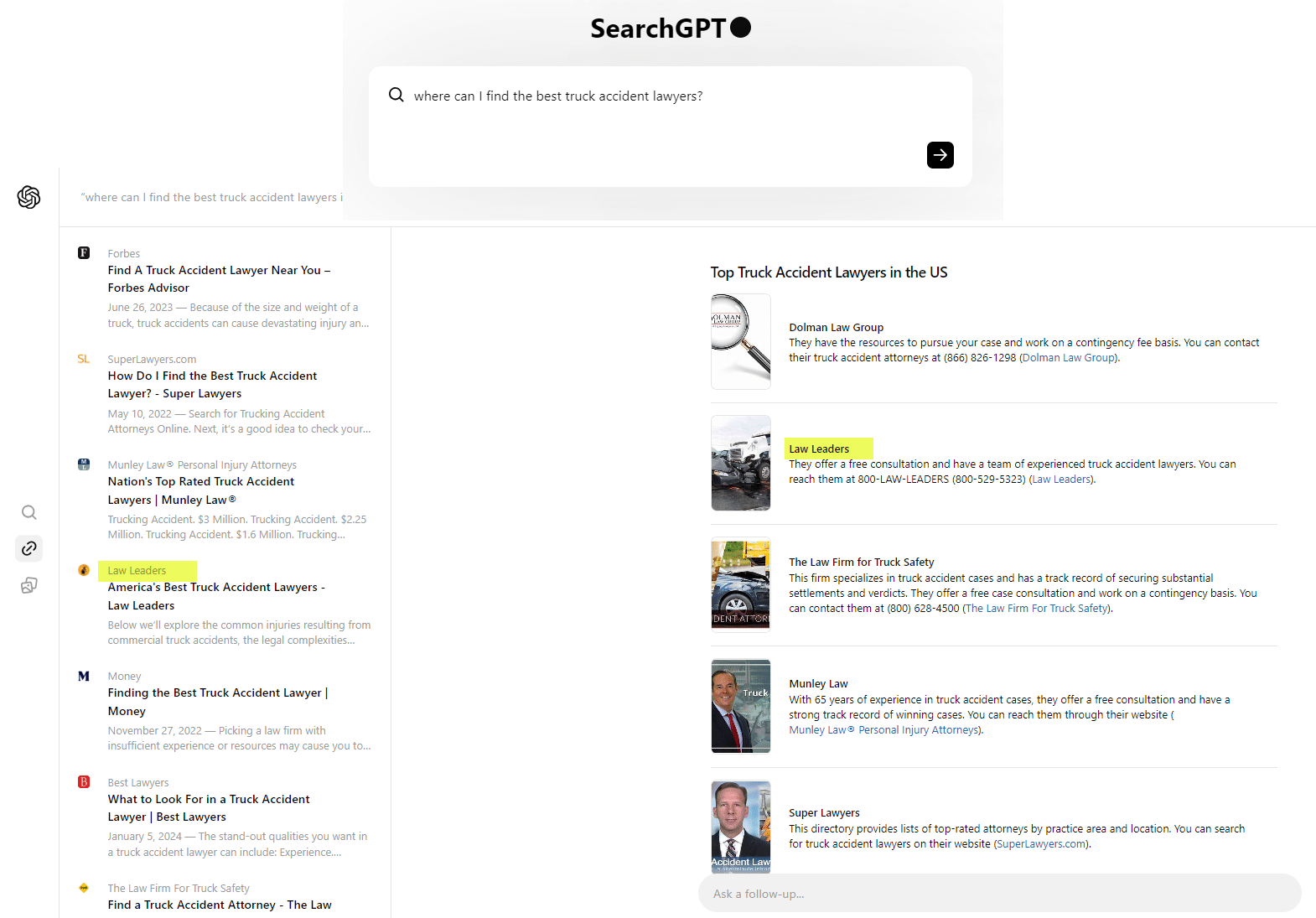
Now in these results, we see a combination of both local and national firms along with directories and organizations like Law Leaders. Yes – I know this is a shameless plug, but it is reflective of the large amount of trucking accident inquiries we currently receive now.
OVERALL INITIAL OBSERVATIONS OF SEARCHGPT SO FAR
When compared to Google search results which have evolved over decades of experience, SearchGPT currently lacks in comparison. Some may find the current lack of advertising, maps display, and inflated review scores refreshing. But the question in my mind is, which option currently provides better value to the average user, and in that vein, Google is still a better choice…by far…for now. But the real question is for how long?
I will continue to test SearchGPT and how it evolves in the months ahead and continue to provide updates as it pertains to the legal industry. I was excited to get early access to the tool and now that I have, my initial expectations were not met. Does this mean that I’m not happy? A long time ago I learned the equation for happiness (results – expectations = happiness) and now that my expectations have been lowered, hopefully SearchGPT will provide better results in the months ahead and we will all be happy in the end…except of course if you’re Google.
 1-800-LAW-Leaders (529-5323)
1-800-LAW-Leaders (529-5323)